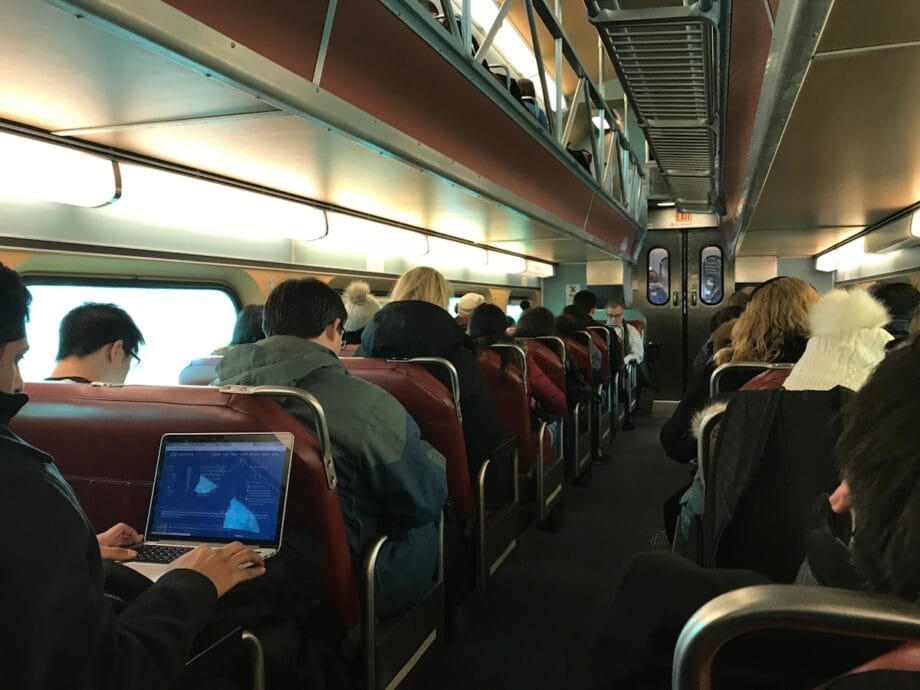United Airlines Encounter FAA Ground Stop Amid Technical Malfunction
On Wednesday, the U.S. Federal Aviation Administration (FAA) initiated a brief ground stop for United Airlines flights due to a notable equipment and technology malfunction. Commencing at 04:58 GMT, this suspension was promptly lifted following FAA updates.
Although fleeting, this disruption resonates with a broader trend within the aviation sector, as numerous airlines have encountered similar technological impediments in recent months. This article delves into the specifics of United’s incident, the underlying causes, and juxtaposes it with comparable occurrences affecting airlines on a global scale.
United Airlines’ Ground Stop: A Transitory Hindrance
The recent ground stop for United Airlines stemmed from a technological glitch that impaired the airline’s operations. The FAA’s advisory illustrated that the disruption was due to an equipment/technology issue, necessitating an immediate cessation of all mainline United Airlines flights. Thankfully, updates from the FAA soon confirmed that the grounding was rescinded.
This incident mirrors a comparable episode from just a month earlier, on August 6, when United Airlines suffered a significant technical breakdown involving its crucial weight and balance computer system. This system is indispensable for monitoring flight data, ensuring safe loading processes, and relaying information to other operational systems.
The failure of the weight and balance system instigated over 1,000 delays and a multitude of cancellations across U.S. airports, severely disrupting passengers and the airline’s operation.
The Broader Impact of Technological Failures in Aviation
While the disruptions experienced by United Airlines were pronounced, it is imperative to recognize that technology-induced challenges are pervasive across the industry. Various airlines have similarly suffered from issues leading to ground stops, flight cancellations, and delays, impacting thousands of passengers globally. Below are some pertinent instances of technology-driven disruptions faced by notable airlines.
Alaska Airlines: July 2025 IT Outage
In July 2025, Alaska Airlines endured a severe IT outage attributed to a hardware failure within its data centers. This outage culminated in a system-wide ground stop for all Alaska Airlines and Horizon Air flights, lasting roughly three hours. The airline was compelled to reposition aircraft and crews, resulting in extensive ramifications for flight schedules.
When services resumed, 150 flights had been canceled, with numerous others delayed as the airline endeavored to restore its systems and accommodate affected passengers. Although the grounding was rescinded later that evening, the ramifications for travelers during busy travel periods were significant.
This occurrence underscores the susceptibility of airline operations when crucial systems fail unexpectedly. Though Alaska Airlines made considerable efforts to mitigate the repercussions, the episode accentuated the critical need for a robust IT infrastructure to sustain operations in an increasingly technology-driven industry.
Frontier Airlines: January 2025 Internet Disruption
Frontier Airlines, a budget carrier in the U.S., encountered a brief ground stop in January 2025 due to an internet outage at its operations center. The FAA confirmed that the ground stop was instigated by Frontier Airlines itself and was lifted expeditiously within 20 minutes.
Fortunately, the inconvenience was promptly addressed, resulting in no notable delays or cancellations reported. Nonetheless, this incident reinforces the notion that even transient outages in critical operational systems can manifest significant interruptions in flight schedules, potentially affecting vast numbers of travelers.
This fleeting disruption serves as a vivid reminder that even minor technical missteps can precipitate system-wide halts in airline operations. The rapid resolution offered by Frontier Airlines minimized disturbances, yet it exemplifies the vulnerability of airlines to internet-related failures in today’s interlinked operational landscape.
SkyWest Airlines: August 2025 Brief Ground Halt
SkyWest Airlines, a regional carrier associated with several major U.S. airlines, also faced a transient ground stop in August 2025. This brief grounding lasted merely 21 minutes and was initiated by the airline itself.
The FAA approved the short interruption, yet it did not result in substantive operational disruptions. SkyWest’s position as a regional carrier meant that the impact was largely confined to its own network, with larger carriers and international operations remaining predominantly unaffected.
Nonetheless, this incident serves as a crucial reminder that even smaller airlines are prone to analogous technological challenges that can invoke significant disruptions for larger entities.
Despite the minor scale of this event, it still highlights the operational perils posed by technology failures within the aviation sector. A brief pause in flight operations can instigate a domino effect of delays, particularly when aircraft require repositioning or schedules necessitate alteration.
Delta Air Lines: Global IT Outage in July 2024
A global IT outage in July 2024 precipitated one of the most substantial disruptions in contemporary aviation history. Delta Air Lines was negatively impacted by a software failure linked to a faulty CrowdStrike update, resulting in the crash of over 8.5 million computers worldwide. This issue drastically hindered Delta’s flight operations, culminating in the cancellation of 7,000 flights over five days, affecting 1.3 million customers.
The software failure engendered widespread disruptions, not solely for Delta, but also for its clientele, many of whom experienced significant delays and cancellations as the airline wrestled to regain command of its systems.
This debacle underscores the extensive ramifications that technology failures can impose when they pertain to vital flight systems and passenger data management. In the wake of the incident, Delta sought legal recourse against CrowdStrike, demanding over $500 million in restitution.

The episode also aroused widespread public and industry trepidations regarding the security and reliability of software updates for airlines and their service providers.
Conclusion: The Escalating Challenge of Technological Disruptions for Airlines
As technology becomes ever more integral to airline operations, it concurrently lays bare an array of risks and vulnerabilities. The United Airlines ground stop serves as a poignant reminder of how equipment and technology failures can engender considerable operational devastation, impacting thousands of travelers and resulting in delays and cancellations.
With other airlines such as Alaska, Frontier, SkyWest, and Delta experiencing analogous incidents in recent years, the trend underscores the imperative for robust IT systems and dependable technology frameworks within the aviation realm.
As airlines progressively incorporate sophisticated technology into their operations, it becomes paramount that they invest in resilient systems capable of enduring failures, thus ensuring minimal disruption to travelers.
Source link: Travelandtourworld.com.






